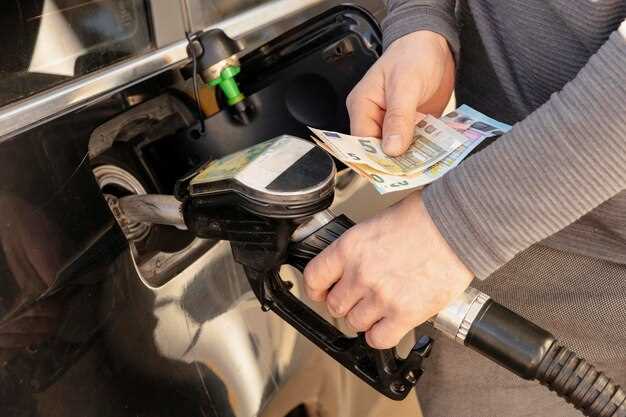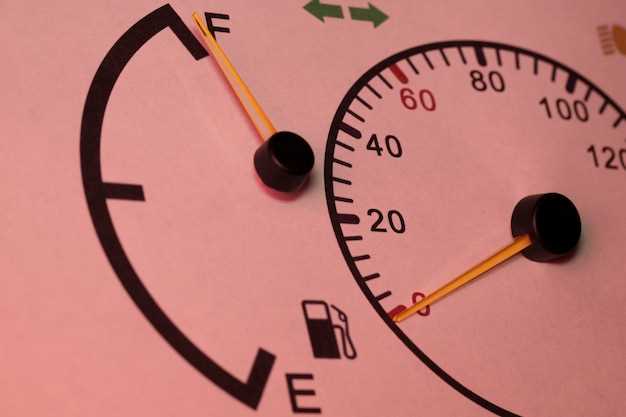
What causes poor fuel economy and how to fix it
- Dominique Kaye
- 0
- Posted on

Understanding poor fuel economy is crucial for every vehicle owner. A decline in fuel efficiency not only affects your wallet but also contributes to environmental issues. Various factors can lead to decreased economy, often rooted in the engine’s performance and maintenance. Identifying these causes allows drivers to take proactive measures for improvement.
Engine inefficiencies can stem from multiple sources including outdated technology, improper maintenance, and driving habits. For instance, dirty air filters, malfunctioning fuel injectors, and under-inflated tires can significantly decrease fuel economy. Recognizing these issues is the first step towards mitigating the financial impact associated with poor fuel consumption.
To enhance fuel efficiency, regular maintenance is essential. Simple actions such as replacing air filters, ensuring proper tire pressure, and utilizing high-quality fuel can lead to noticeable improvements in your vehicle’s economy. Further, adopting smoother driving techniques can help you get the most out of every gallon of fuel. By addressing these aspects, drivers can not only save money but also promote a more sustainable environment.
Identifying Common Mechanical Issues Affecting Fuel Economy

Fuel economy is crucial for both financial savings and environmental considerations. Several mechanical issues can significantly hinder engine performance, leading to increased fuel consumption. Identifying these problems early can help maintain optimal performance and efficiency.
One common issue is a clogged air filter. An obstructed filter restricts airflow to the engine, disrupting the air-fuel mixture. This imbalance can cause the engine to work harder, resulting in poor fuel efficiency. Regularly checking and replacing the air filter is essential for maintaining optimal combustion.
Another significant factor is fuel injector malfunction. If injectors become dirty or fail to function properly, they can either flood the engine with fuel or fail to deliver enough. This miscommunication leads to inefficient combustion, consequently decreasing fuel economy. Cleaning or replacing fuel injectors can resolve this issue.
Worn spark plugs present another challenge. Damaged or fouled spark plugs can cause incomplete combustion, which not only affects engine performance but also leads to excessive fuel consumption. Replacing spark plugs at recommended intervals ensures efficient ignition and helps improve overall fuel economy.
Additionally, issues with the fuel system, such as a failing fuel pump or a leaking fuel line, can negatively affect engine performance. A weak fuel pump may not supply adequate fuel pressure, leading to poor engine operation. Regular maintenance of the fuel system is critical for ensuring that the engine operates efficiently.
Lastly, tire pressure plays a seemingly minor yet crucial role in fuel economy. Under-inflated tires create more rolling resistance, forcing the engine to exert extra effort to maintain speed. Keeping tires inflated to the manufacturer’s specifications can boost fuel efficiency significantly.
In conclusion, identifying and addressing these common mechanical issues–clogged air filters, malfunctioning fuel injectors, worn spark plugs, fuel system problems, and incorrect tire pressure–can enhance engine performance and improve fuel economy. Regular maintenance checks and timely repairs are essential for keeping a vehicle running efficiently.
Understanding How Driving Habits Impact Fuel Consumption

Driving habits play a crucial role in determining the fuel economy of a vehicle. Aggressive acceleration and excessive speeding can lead to a significant increase in fuel consumption. When drivers frequently accelerate rapidly and brake hard, the engine works harder to regain speed, which reduces overall efficiency and increases fuel usage.
Conversely, adopting a smoother driving style can enhance performance and economy. Gradual acceleration, maintaining a steady speed, and early braking are practices that can lead to better fuel efficiency. Utilizing cruise control on highways can help in maintaining a consistent speed, thus optimizing fuel usage.
Frequent idling also contributes to poor fuel economy. When a vehicle is left running without movement, fuel is consumed without any real benefit to performance. Turning off the engine during long stops can conserve fuel.
Moreover, the choice of routes can impact fuel consumption significantly. Short, stop-and-go routes often consume more fuel compared to longer, uninterrupted drives. Planning routes that minimize congestion can lead to improved fuel economy and overall vehicle performance.
Another essential factor is tire maintenance. Under-inflated tires increase rolling resistance, causing the engine to work harder and use more fuel. Regularly checking tire pressure ensures optimal performance and can enhance fuel economy.
In conclusion, cultivating good driving habits, being aware of road conditions, and maintaining the vehicle can lead to improved fuel performance and better overall economy. Simple adjustments in driving behavior can significantly reduce fuel consumption and contribute to a more economical driving experience.
Upgrading Engine Components to Improve Fuel Efficiency
Improving fuel economy can significantly enhance the overall performance of a vehicle. Upgrading various engine components is a key strategy in achieving better fuel efficiency. Essential modifications can reduce fuel consumption while simultaneously optimizing engine output.
1. High-Performance Air Intake Systems
Replacing the factory air intake with a high-performance system allows for better airflow, promoting improved combustion efficiency. Enhanced airflow increases the engine’s power output and enhances economy by ensuring that the optimal air-fuel mixture is maintained during operation.
2. Upgraded Exhaust Systems
An efficient exhaust system minimizes back pressure, enabling the engine to expel exhaust gases more effectively. Upgrading to a performance exhaust system not only boosts power but also maximizes fuel economy by improving engine efficiency and reducing the workload on the engine.
3. Fuel Injectors
Upgrading fuel injectors to high-efficiency models ensures precise fuel delivery. This precision allows for better atomization of fuel, resulting in a more complete combustion. Upgraded injectors can help achieve optimal fuel consumption, translating to a tangible improvement in fuel economy.
4. Engine Control Unit (ECU) Reprogramming
By reprogramming the ECU, drivers can optimize performance settings for fuel efficiency. Tailoring the engine’s air-fuel mix and ignition timing can lead to enhanced fuel economy without sacrificing engine performance.
5. Lightweight Components
Replacing heavy engine components with lighter alternatives can reduce the overall weight that the engine must propel, leading to lower fuel consumption. Lightweight materials can assist in improving both handling and efficiency.
Investing in these engine upgrades not only improves performance but also plays a crucial role in enhancing fuel economy. By adopting these strategies, owners can enjoy the benefits of reduced fuel expenses and a more environmentally friendly driving experience.
